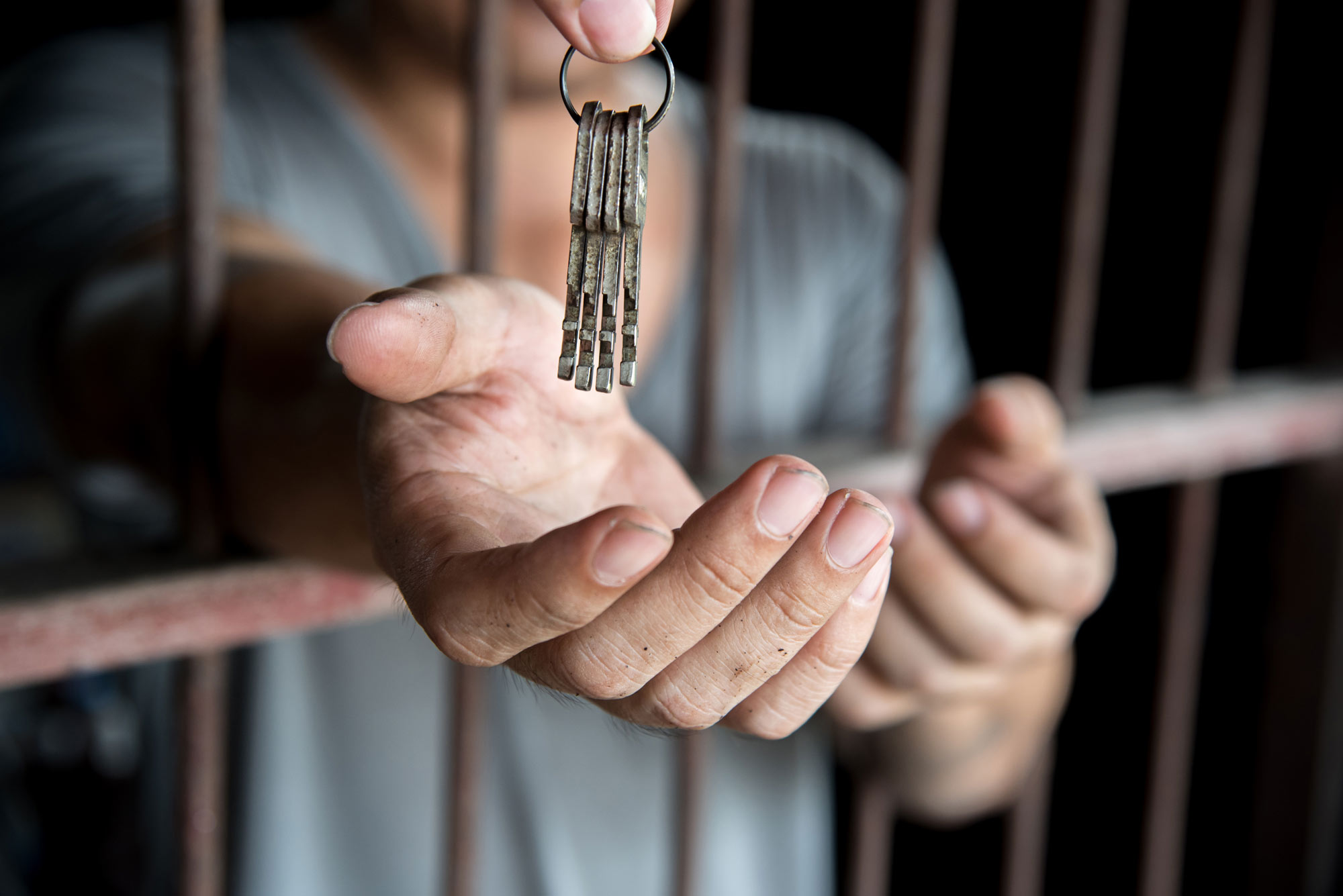First Step Act
What is the First Step Act?
The First Step Act has been one of the most significant prison reforms in our generation. It was signed by President Trump on December 27, 2018 and contains many changes to improve the lives of federal prisoners, shorten their prison terms, and in many cases, be released into halfway houses or home confinement sooner. This act has given many families the chance to get that fresh start in society and the justice they deserve.
How Does This Affect the Federal Prison System?
The act only affects the federal prison system and is not applicable to state inmates or defendants. It has a small impact on the overall criminal justice system in America but a large impact on federal defendants and inmates. However, many state and local prisons are also reviewing these changes any may be incorporating them into their own policies, programs, and operations. Call Jail Time Consulting for a complete overview of what this program can do for you or your loved ones.
One of the most impactful change put into effect was the expansion of Good Time Credit which all prisoners, except those serving life sentences, have access to. The amount of credits has been expanded to an additional seven days of credit. While it doesn’t sound like much to many people, the families that are waiting for the return of their loved ones can say that every day counts. This small change alone has the potential to free over 4,000 prisoners today.
A second, very powerful addition to help inmates leave prison early, is the Sentence Reduction Credits, (Earned Time Credits), section of the ACT. This section allows inmates to take certain anti-recidivism based/rehabilitation programs that the BOP is developing right now. As a matter of fact, Congress has mandated that these programs must be in place by July of 2019. Every one of these classes that the inmate successfully completes will give him a Sentence Reduction Credit that he can use to leave prison early. The Bureau of Prisons has been given additional funding for these rehabilitation programs and also RDAP, to ensure all prisoners that are eligible for such programs can get the opportunity to take them and reduce their sentence. In addition to these funds, the Bureau of Prisons is also receiving more than $300 Million in new funding for job training and education programs. They’ve been required to expand these programs much faster than before so prisoners can have access to and earn their earned time credits.

In the cases of nonviolent drug offenders, or individuals with no prior criminal history, judges are now encouraged to skirt the mandatory minimum sentencing guidelines. This allows the federal prison system to take these low-risk, low-requirement individuals and get them into programs like halfway houses or home confinement.
Old Programs Revisited
Congress has also mandated that some former BOP programs be reinstated which can provide additional ways for a federal inmate to complete his prison sentence and leave prison early. These programs include:

1. Reforms the BOP’s compassionate release process for prisoners facing “extraordinary and compelling” circumstances, including
- Allowing prisoners to appeal denials of compassionate release to federal courts after all other BOP remedies have been exhausted or at least 30 days have passed since the request was submitted;
- Requiring annual data reporting on BOP’s use of compassionate release;
- Creating an expedited timeline for BOP consideration of compassionate release requests of terminally ill prisoners;
- Permitting family members, consultants, and other individuals to help prisoners file compassionate release requests;
- Requiring better notice to BOP staff and prisoners of when compassionate release is available and how to ask for it;
2. Reauthorizes an elderly prisoner early release pilot program
From the Second Chance Act of 2007, allowing elderly and elderly terminally ill prisoners to be released from prison early if they are at least 60 years old, have served 2/3 of their sentences, and meet all of the other requirements;
New Programs In the First Step Act Which Can Help Federal Inmates
Congress has stipulated to the Bureau of Prisons that the following programs and procedures be done for federal inmates and defendants:
1. Requires BOP to put lower-risk, lower needs people in home confinement
for the full amount of time permitted under current law (10 percent of the person’s sentence or 6 months, whichever is less);
2. Requires the BOP to place prisoners within 500 driving miles, not air miles, of home
If security classification and bed space allow it. Unfortunately, we feel this will only be for federal defendants facing prison for the first time, not existing inmates already in federal prison. The BOP can still use Management Variables, (MGTVs), to house an inmate in a higher security prison than he is scored for.

Classifying Inmates as to RISK of Recidivism
The FIRST STEP Act requires the BOP to adopt a risk assessment tool, assess all federal prisoners for their risk of recidivism, and categorize them as minimum, low, medium, or high risk. Some federal prisoners would be able to earn time credits for completing rehabilitative programs, which minimum- and low-risk prisoners would be allowed to redeem for more time in a halfway house or home confinement at the end of a person’s sentence. Medium- and high-risk prisoners would have to petition to redeem the time credits they earn, but would only redeem credits with approval of the warden and a determination that they are not likely to re-offend and not a public safety threat. Prisoners who cash in their time credits for time on home confinement or a halfway house would be sent back to prison if they violated the conditions of their release.
Incentives to Prisoners Who Cannot Earn Time Credits
The following incentives may be available to inmates who cannot earn time credits:
Receive up to 510 phone minutes per month (Prisoner must pay for);
Receive additional time for visits, as determined by the warden;
Receive Additional time using the BOP’s email system (which prisoners must pay for);
Increased commissary spending limits and product offerings;
Requires BOP to help people get government identification cards and birth certificates before they leave prison;
Consideration for transfer to preferred housing units;

How Does This Affect You?
Call Jail Time Consulting, 231-668-9231, to determine which parts of the new First Step Act you or your loved ones qualify for. Jail Time Consulting is the leader in Prison Sentence Reduction Programs and getting you or your loved one home as fast as possible. This Act allows more sentence reductive incentives and benefits for prisoners to enroll and complete.
Expert assistance to our clients for their successful admission and participation in the First Step Act
Since the First Step Program is so new, competitive and in such high demand, our staff diligently reviews the client’s qualifications, personal and family history in respect to the First Step Act and all of its benefits.
We know the exact criteria that the Bureau of Prisons’ is looking for as to eligibility requirements. We know the key criteria contained in the First Step Act. We are able to position our clients for the all-important new Anti-Recidivism/Rehabilitation Programs being developed by the Bureau of Prisons. Our Program provides everything you need to know about the First Step Act and we file for it immediately. Time is of the essence when you have 200,000 inmates also applying for the benefits. You want to be on the top of the list, not the bottom! Do you really want to take a chance with the wrong prison consultant? If my life and future were on the line, I wouldn’t!
Our staff, by advising you in these important and decisive areas, and knowing the questions you will be asked by the BOP Staff, can all but assure you of a successful First Step Program and an early release from prison. But you must act now, do not wait until it is too late. Do not be the inmate who calls from prison and says, “I only wish I had called you before.” Call now, 231-668-9231.
